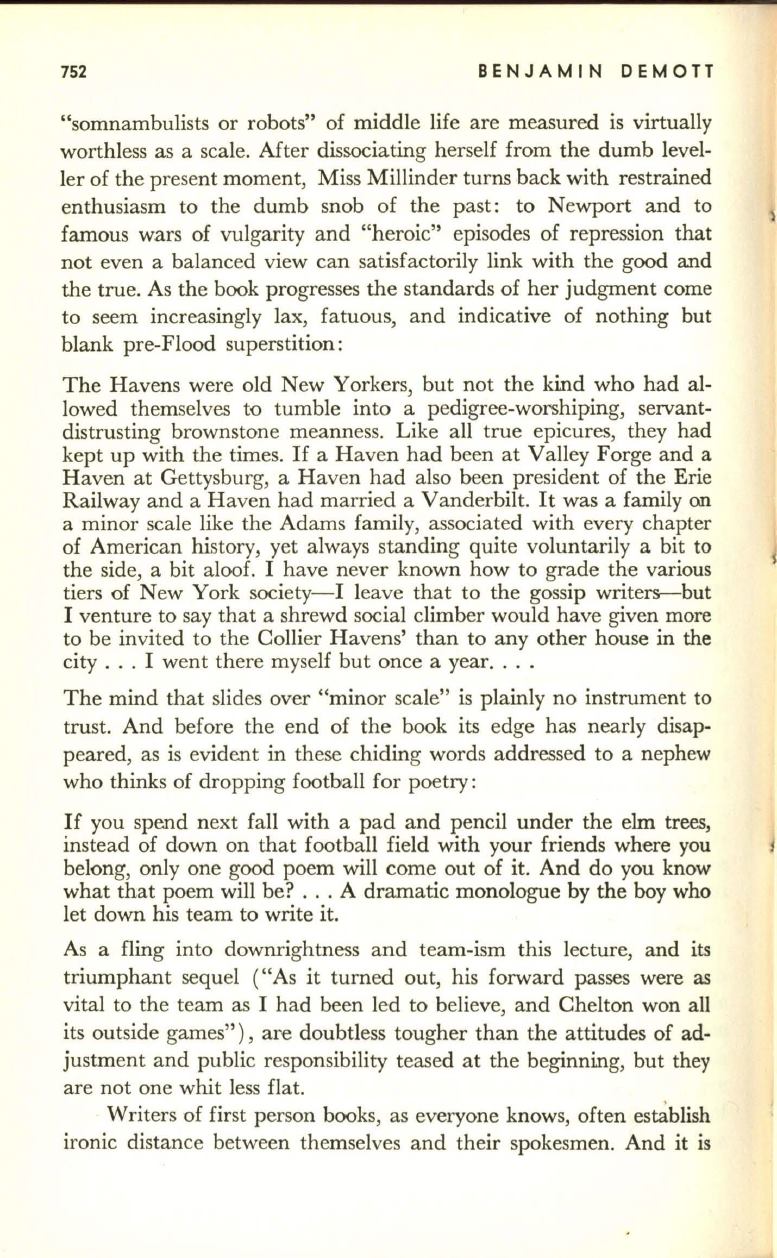
752
BENJAMIN DEMOTT
"somnambulists or robots" of middle life are measured is virtually
worthless as a scale. After dissociating herself from the dumb level–
ler of the present moment, Miss Millinder turns back with restrained
enthusiasm to the dumb snob of the past: to Newport and to
famous wars of vulgarity and "heroic" episodes of repression that
not even a balanced view can satisfactorily link with the good and
the true. As the book progresses the standards of her judgment come
to seem increasingly lax, fatuous, and indicative of nothing but
blank pre-Flood superstition:
The Havens were old New Yorkers, but not the kind who had
al–
lowed themselves to tumble into a pedigree-worshiping, servant–
distrusting brownstone meanness. Like all true epicures, they had
kept up with the times.
If
a Haven had been at Valley Forge and a
Haven at Gettysburg, a Haven had also been president of the Erie
Railway and a Haven had married a Vanderbilt.
It
was a family on
a minor scale like the Adams family, associated with every chapter
of American history, yet always standing quite voluntarily a bit to
the side, a bit aloof. I have never known how to grade the various
tiers of New York society-I leave that to the gossip writers--but
I venture to say that a shrewd social climber would have given more
to be invited to the Collier Havens' than to any other house in the
city ... I went there myself but once a year....
The mind that slides over "minor scale" is plainly no instrument to
trust. And before the end of the book its edge has nearly disap–
peared, as is evident in these chiding words addressed to a nephew
who thinks of dropping football for poetry:
If
you spend next fall with a pad and pencil under the elm trees,
instead of down on that football field with your friends where you
belong, only one good poem will come out of it. And do you know
what that poem will be? ... A dramatic monologue by the boy who
let down his team to write it.
As a fling into downrightness and team-ism this lecture, and its
triumphant sequel ("As it turned out, his forward passes were as
vital to the team as I had been led to believe, and Chelton won all
its outside games"), are doubtless tougher than the attitudes of ad–
justment and public responsibility teased at the beginning, but they
are not one whit less flat.
Writers of first person books, as everyone knows, often
es~blish
ironic distance between themselves and their spokesmen. And it is


